New Azara Ballet makes Sarasota debut with focus on mental health of dancers
Kate Flowers remembers vividly the moment a childhood ballet teacher pinched the skin on her 10-year-old belly between her thumb and forefinger – making clear, without saying a word, that her stomach needed to be flatter – then whispered a warning: “Now, don’t go home and tell your parents I called you fat!”
“I wasn’t even seriously dancing at the time,” says Flowers, now 34 and the artistic director of Sarasota’s newest dance company, Azara Ballet. “I didn’t even have a concept about my body or my ego at that age. But it went somewhere into my subconscious.”
And there it would remain, reinforced over the years by other body image and comportment messages she received as she pursued her goal of becoming a professional ballet dancer. By 15, she’d developed an eating disorder that whittled her 5-foot-2 frame to less than 100 pounds. By 16, she was caught in the throes of a substance abuse addiction that left her “mentally and emotionally a disaster.”
At 17, she quit dancing entirely, the casualty of a culture that, too often, has emphasized aesthetics, appearance and stamina over mental and physical health.
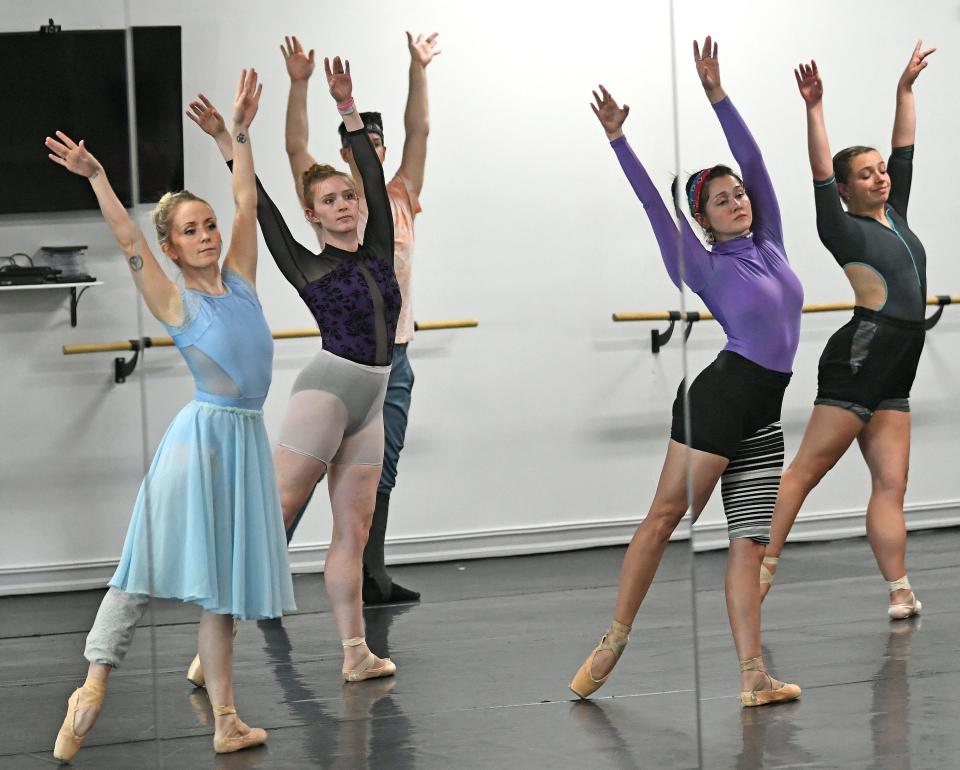
Creating a new culture
The 14 dancers of Azara Ballet – 11 women and 3 men, including Flowers and Martin Roosaare, her fiancé and co-artistic director – are assembled in the Marley-floored studio of a theater arts school in Bradenton, rehearsing for their first public performance at the Neel Performing Arts Center in November. In many ways, it is a typical ballet scene – the women are in pointe shoes; the men in t-shirts and tights – but there’s something tangibly different in their lack of uniformity.
They range in age from 21 to 34; some have just graduated from college; others are already veterans of more than one company. They are tall or short and more muscular and athletic than waifish and ethereal. One dancer has a nose ring, another a full sleeve of tattoos.
They’re rehearsing an original contemporary work, to an original score – no story-ballet classics for Azara. The dancers sitting on the side watch their colleagues attentively and spontaneously burst into applause when the music stops. Flowers and Roosaare quietly make suggestions, but just as often take them from the rehearsal director, Brook Wasserman, a longtime Sarasota ballet teacher and dancer. There is an air of ease and equity that doesn’t always exist in the studio space.
That’s exactly the concept Flowers and Roosaare had in mind when, after meeting six years ago – she, tentatively testing the waters to explore a return; he, frustrated by the bureaucratic constraints of the companies he’d danced with – fantasized about creating their own company. A company where dancers of high ability would be welcomed regardless of their body type, skin color or sexual orientation; where the stratification and hierarchies of a traditional company would be replaced by a “village” of individual artists and where care for the dancers’ physical and mental wellbeing would be paramount.
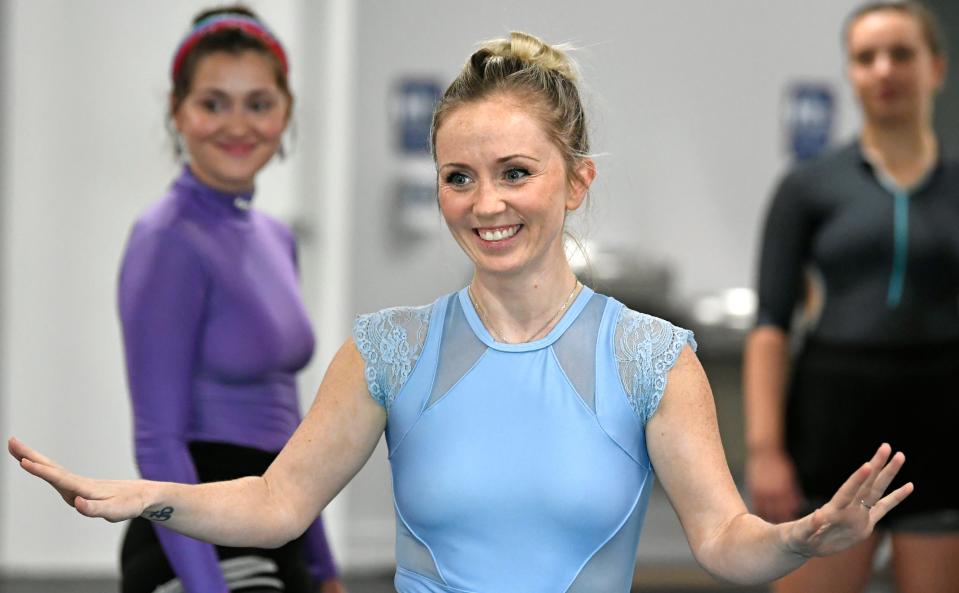
Now, after more than a year of planning, fundraising, obtaining nonprofit status, holding auditions (in person and virtually) and settling on a name (drawn from an old map that labeled Sarasota as Zarazota), that vision – to revitalize ballet culture and infuse it with a profound emphasis on the mental and emotional well-being of the dancers – is becoming a reality.
“We wanted to create a safe space and haven for professional dancers,” says Flowers, who is committed to breaking new ground in terms of representation and inclusivity in the company’s work. “We’re just trying in our small way to rewrite some of the toxic ballet culture that’s been perpetuating for eons and to give the dancers a voice they’ve never had.”
The dancers take class and rehearse four days a week for no more than five hours (a typical professional dancer’s day can involve 6 to 8 hours of rehearsal). Many volunteer to teach the outreach classes the company offers to children with autism and other disabilities and adults with Parkinson’s disease. Flowers and Roosaare have an open door policy that encourages dancers to share when they are under stress.
Though, for this inaugural year, the dancers will only be paid a stipend for performances, most are not local and moved from as far away as the U.K., drawn by the difference in the company’s approach, ambiance and philosophy.
“I love how Azara’s mission aligns with everything I want to see in the dance world,” says Sarah Dawn, a certified yoga instructor who formerly danced with a pre-professional Christian dance school. “Imagine how much more impactful we can be as dancers – and human beings – when our work environment is safe, supportive and caring. Our expression can shine so much brighter when we exist in a system of trusting our bodies rather than traumatizing them.”
Elise Csizmadia, a former trainee with Cincinnati Ballet, sees Azara as the ballet wave of the future.
“I’m excited to dance with Azara because it’s a nurturing, inclusive, safe environment where dancers can be their authentic selves,” she says. “It gives me hope that ballet can continue to grow into a more positive art form.”
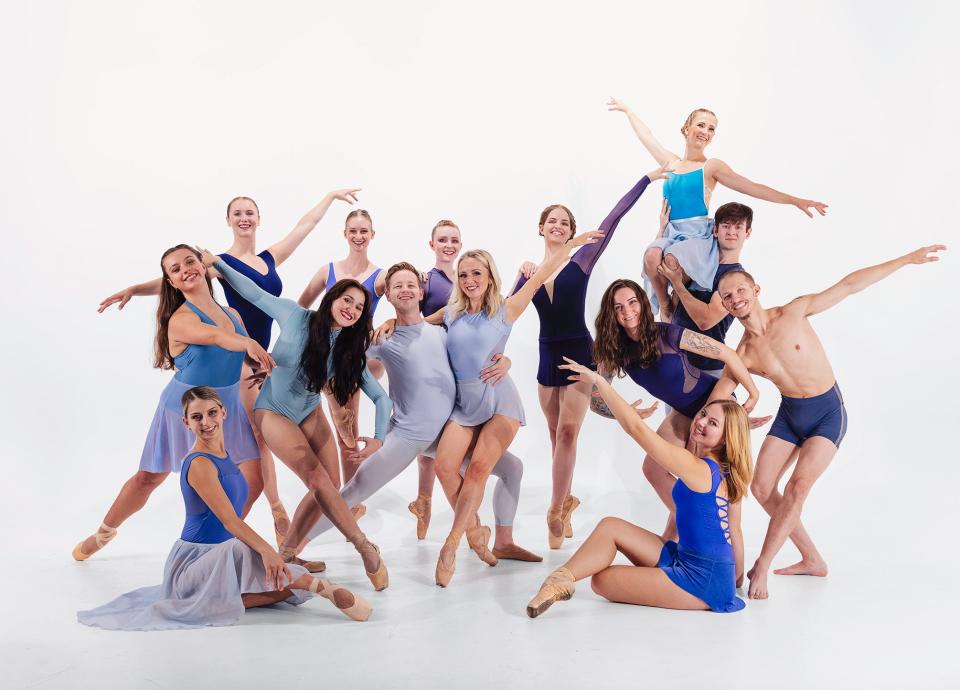
A downward spiral
Flowers was one of those toddlers who loved to don a tutu. There’s a home video of her at 4 professing her desire to become a ballerina. She started taking classes at “a rinky dink studio” at age 7 in Queens, New York, but got serious when her family moved the following year to Ohio, where she began attending a performing arts school.
Her parents’ divorced when she was 10; by 12 she was living with her father, taking daily ballet classes and internalizing messages, overt and subtle, about what she had to do and needed to look like to succeed. That meant alternately starving herself and exercising to an extreme. When her father, who worked long hours, brought home pizza for dinner, it enraged her, feeling he was trying to sabotage her weight control efforts. Unaware of his daughter’s anorexia, he chalked it up to adolescent hormones.
In the fall of her senior year in 2005, Flowers was accepted into the year-round training program at the Joffrey Ballet in New York. “That,” she says, “is where the downfall begins.”
An honors student, she finished all of her senior credits online in two months, planning to move by herself to New York in January to join the Joffrey school. She’d always been “a good girl” who “didn’t do drugs,” but when she was introduced to cocaine, she welcomed its appetite suppressing effects. That led to other illegal substances and “by the time I got to the Joffrey, I was addicted.”
Strung out on drugs, she missed classes with increasing frequency. When the school called her father, he insisted she return home to Ohio. She did and, within a month of her return, she stopped all hard drugs cold turkey. (She continued to use alcohol and marijuana for the next decade.) Deeply depressed, she also withdrew from anything that had to do with dance or performing.
“I was just damaged and horrifically sad,” she recalls. “For over a decade I did not go see a show of any kind.”
At 19, however, she returned to New York, still compelled to find some way to perform. But she had no experience with creating her own structure and instead, she started waitressing and making YouTube videos about her dance journey and her turn toward a healthier, plant-based diet. (Her father learned of her drug usage for the first time in her initial video. “It was easier to talk to a camera than to talk to him,” Flowers says.)
This was in the early stages of YouTube and she quickly became a social media “influencer,” with 100,000 or more views on every video. That fueled a lucrative recipe business on the side. It was a precipitous and heady rise to fame, even if the twice-weekly videos eventually became a grind. Only occasionally did she stop and sigh… “Oh, I used to be a dancer.”
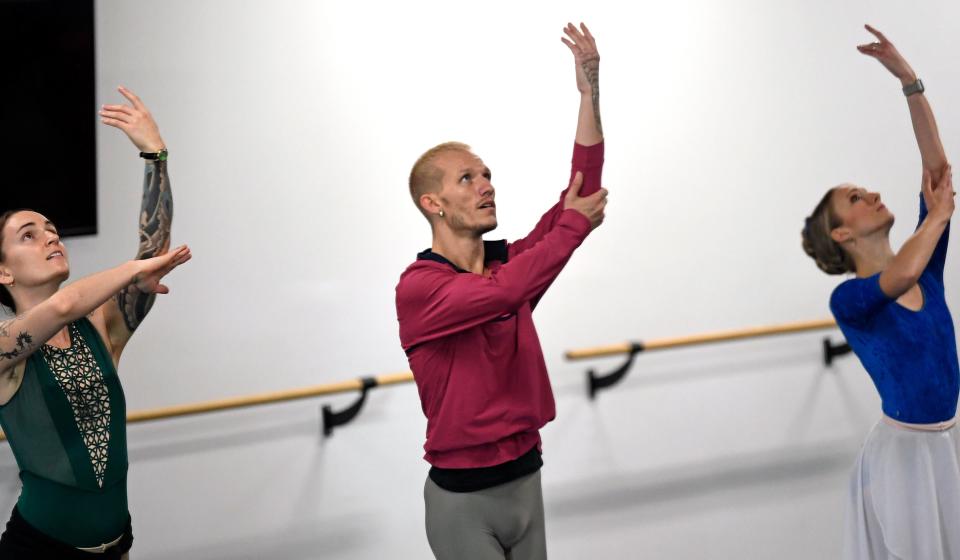
Recognizing mental health as paramount
It didn’t take long to realize if anything might be worse for her mental health than the ballet world, it was the social media world.
“I don’t think we’re built to receive the opinions of hundreds of thousands of people,” she says. “We are built for a tribe, a family we trust, and I was getting feedback from thousands. At first it was exciting and I felt torn about retiring from that, but it’s the best thing I could have done for my mental health.”
After being off for 11 years, she tried dancing again for a year with a small company in Ohio while continuing to run her business, but soon realized she couldn’t do both. She quit dancing again, for another four years.
In 2021, she tried again, now with the body of a woman in her 30s. She’d spent only three of the previous 19 years dancing and was “not even sure if I was still able to do it.” She began working with a company in Cincinnati where, during the off-season, she met Roosaare, who was then dancing with Ballet Met. His dancing both excited and discouraged her.
“I was really inspired by him because I’d never seen a dancer at that level,” Flowers says. “There was a moment of just complete awe over his talent. And, at the same time, a heartbreak over where I could have been. I still feel that a little bit.”
Arts Newsletter: Sign up to receive the latest news on the Sarasota area arts scene every Monday.
Promoting Florida’s Cultural Coast: New survey shows arts drive economy, jobs and tourism in Sarasota County
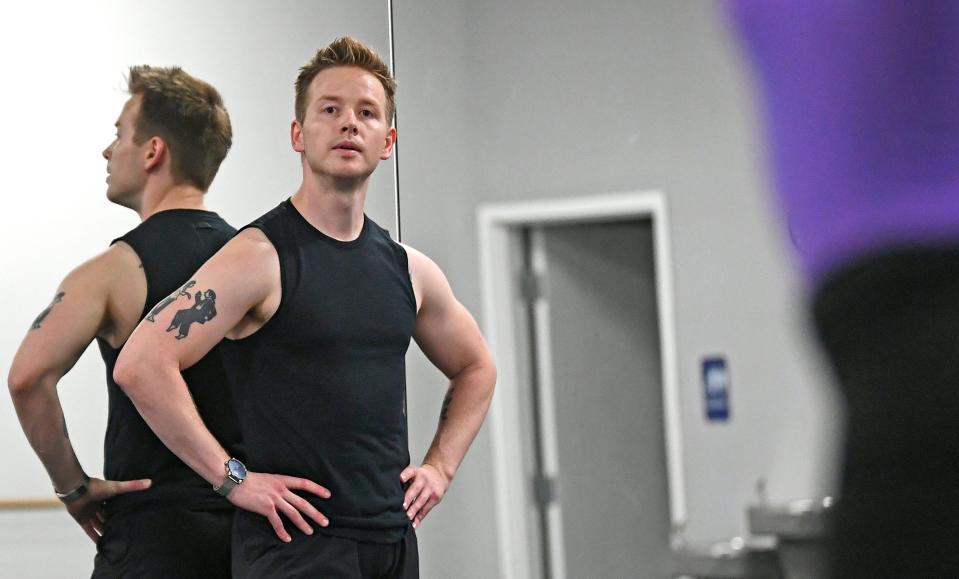
Roosaare, who was born in Estonia and started dancing at his stepfather’s studio at age 8, had also experienced social and emotional struggles in his younger life – attributable to a diagnosis of autism spectrum disorder he belatedly received at age 28. For him, the ballet world – where men are notoriously welcomed and encouraged in a way women never are due to their lesser numbers – provided a healthy escape.
“I always felt there was something wrong with me because I didn’t fit in,” says Roosaare, who dances, helps direct and choreographs for Azara. “I was often called ‘strange’ and got made fun of. But autism didn’t hinder my ballet career. If anything, ballet has always been the place where I’ve thrived.”
The fulfillment that had eluded each of them in their lives and careers, they have found working together. Roosaare did a short stint with Nashville Ballet and then joined Flowers, who had moved to Sarasota, where her father also lives.
This past summer, they danced together publicly for the first time, at a gala/fundraiser for Azara. At the conclusion of their performance, Roosaare proposed to Flowers on stage. Though now officially engaged, they’ve set no date for a wedding.
“Our baby is Azara Ballet,” Flowers says. “It’s all we have time for right now.”
‘Expressions’
Presented by Azara Ballet. 7 p.m. Nov. 17, 2 and 7 p.m. Nov. 18, Neel Performing Arts Center, 5840 26th St. West, Bradenton. Tickets are $32-$35. Livestream is $20. azaraballet.org/performances
Contact Carrie Seidman at carrie.seidman@gmail.com or 505-238-0392.
This article originally appeared on Sarasota Herald-Tribune: New Sarasota dance company aims for healthier approach to ballet

